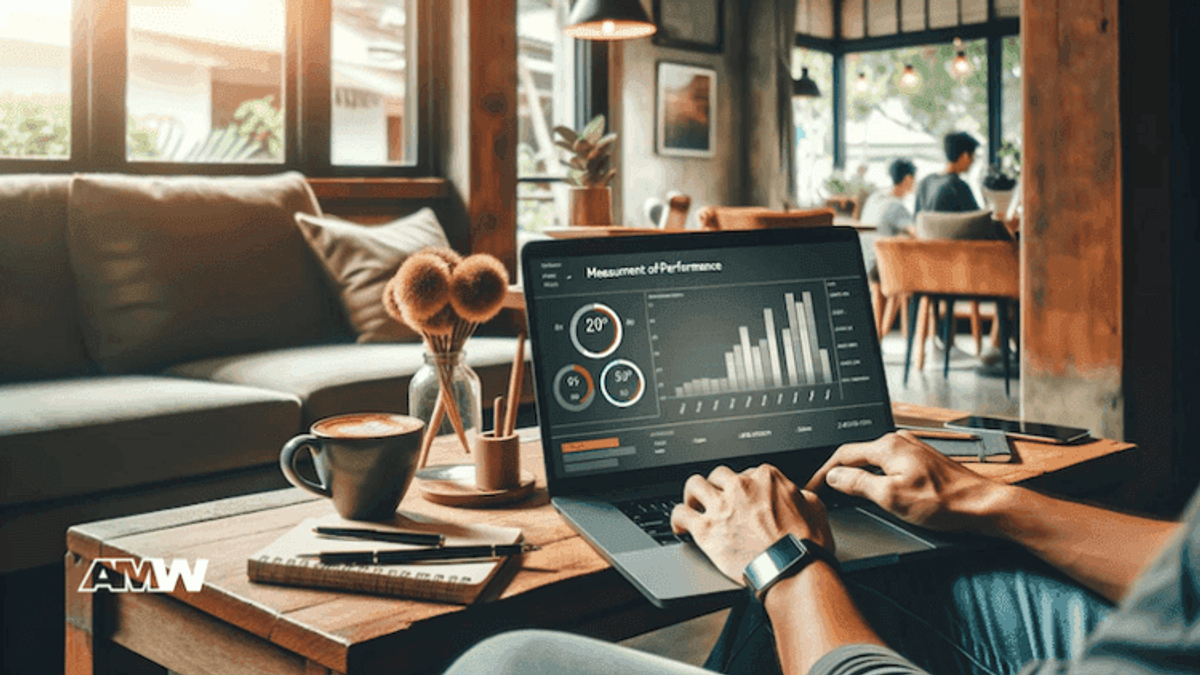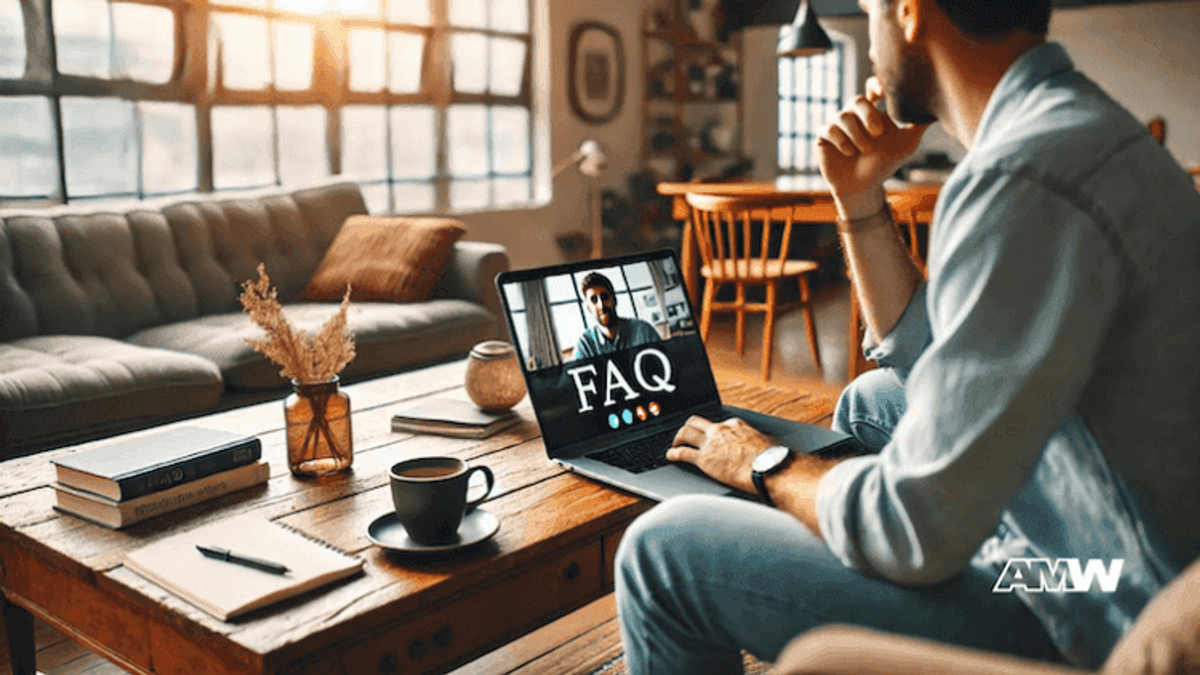Increase Your Website Traffic with Small Business SEO Services

A good online presence is important to small business success.
Quick Summary
A strong online presence is crucial for small businesses, and leveraging SEO services can significantly enhance visibility and traffic. Key strategies include keyword research, on-page and off-page optimization, and technical SEO, tailored to specific business needs. Benefits range from improved credibility and user experience to higher ROI. Ultimately, effective SEO fosters growth, enabling businesses to attract more customers and thrive in a competitive landscape.
One of the best ways to get more visibility and traffic to your site is through SEO.
SEO is about optimizing your online presence (website) to rank higher on SERPs.
Ready to Grow Your Business?
Get a custom strategy tailored to your goals.
This post is a guide for small businesses on how to use SEO services to get more traffic to your website and more customer engagement and growth.
Small Business SEO Services

SEO services cover many strategies and techniques to get your website visible on search engines like Google. For small businesses, these services are tailored to your needs and budget, so maximum impact without breaking the bank.
This includes:
- Keyword Research: Identifying the most relevant and high traffic keywords that customers use to search for products or services like yours. This is critical as it's the foundation of your SEO strategy.
- On-Page Optimisation: Optimising web pages to rank higher and get more relevant traffic. This involves optimizing title tags, meta descriptions, header tags, and URL structures and improving the content and internal linking on your website.
- Off-Page Optimisation: Building your website's authority through external means such as getting backlinks from other sites. This also includes social media marketing (SMM), guest blogging, and influencer outreach.
- Technical SEO: Make sure your website meets the technical requirements of search engines. This includes site speed, mobile-friendliness, crawlability, and security (e.g. HTTPS).
- Local SEO: Optimising your online presence to get more business from local searches. This is especially important for small businesses targeting a local customer base. Local SEO involves optimizing your Google My Business profile, managing online reviews, and ensuring consistent NAP (Name, Address, Phone Number) across directories.
- Content Marketing: Creating high quality, relevant content to attract and engage your target audience. Content marketing drives traffic and supports other SEO efforts by providing valuable content for keyword optimisation and link building.
Benefits of Small Business SEO

Investing in SEO services can give small businesses a competitive edge in the digital world.
Here are the benefits:
- More Visibility and Higher Search Engine Rankings: By optimizing your website for relevant keywords, you can rank higher on search engine results pages. More visibility means more organic traffic, as users are more likely to click on links at the top of the search results.
- Better Website Usability and UX: SEO involves improving the structure of your site making it easier for users to navigate and find what they need. A well optimised site can lead to more engagement and conversion rates.
- More Credibility and Trust with Customers: Websites that rank at the top are perceived as more credible by users. Implementing SEO best practices can help build your brand's reputation and establish trust with customers.
- Better Local Presence and Local SEO Benefits: For small business targeting a local audience local SEO is key. Optimising for local search terms and managing your online reputation through reviews and directory listings can get you more visibility in local search results.
- Return on Investment: SEO can give you a higher ROI. By attracting targeted organic traffic you can get more cost effective marketing results and drive sustainable growth for your business.
Now that you understand and know the benefits, small business can use SEO services to increase website traffic, online visibility and achieve business goals.
In the next sections we will go into the practical steps of implementing SEO services, choosing the right service provider and measuring SEO performance to keep improving.
How to Get Started with Small Business SEO

Keyword Research
KW research is the basis of any SEO strategy. Start by identifying keywords your target audience would use to search for products or services like yours.
Use KW research tools like Google Keyword Planner to find volume and competition keywords.
- Identify Target Keywords: Focus on a mix of short tail keywords (e.g., "coffee shop") and long tail keywords (e.g., "best coffee shop in downtown City") to capture a wider range of search queries.
- Analyse Competitors: Look at the KW your competitors are ranking for and identify gaps where you can beat them.
- Prioritise Relevance: Make sure the keywords you choose are relevant to your business and align with the search intent.
On-Page Optimisation
On-page optimization involves refining individual web pages to improve search engine rankings.
Here are the key elements to focus on:
- Meta Descriptions and Title Tags: Write title tags and meta descriptions that describe each page. These are important as they show in search results and impact click-through rates.
- Header Tags (H1, H2, H3, etc.): Use header tags to structure your content. Make sure to use the main keyword in the H1 tag. H2 and H3 tags should be used to create subheadings.
- URL Structure: Create descriptive URLs that include target keywords. Avoid long and complex URLs with unnecessary parameters.
- Content Optimisation: Make sure your content is high quality, informative, and relevant to your target audience. Use keywords naturally within the content and include variations to avoid keyword stuffing.
- Internal Linking: Link to important pages on your website to make it easier to navigate and help engines understand how the pages are connected.
Off-Page SEO Strategy
Off-page SEO is about increasing your website's authority through external efforts. The main tactic here is link building which is about getting backlinks from other websites.
Ready to Grow Your Business?
Get a custom strategy tailored to your goals.
- Link-Building Techniques: Reach out to industry influencers, bloggers, and authoritative sites to get backlinks. Consider guest blogging, where you write for other sites.
- Social Media: Engage on social media platforms. Share your content, participate in discussions, and encourage sharing to increase your online visibility.
- Influencer Outreach: Work with influencers to promote your content and get backlinks from their website or social media profiles.
Technical SEO Compliance
Technical SEO is about optimizing the technical aspects of your site to meet standards.
- Mobile: Ensure the site is responsive and offers a seamless experience across all devices. Mobile-friendliness affects search engine rankings.
- Site Speed: Optimize the website's loading speed by compressing images, leveraging browser caching, and minimizing code. Faster websites provide a better user experience and are favored by search engines.
- Indexability: Make sure engines can crawl and index the website. Create and submit an XML sitemap, use robots.txt files correctly, and avoid duplicate content.
- Secure and Accessible Website (HTTPS): It is important to Implement HTTPS on a website.
Local SEO
Here's how to optimize your local presence:
- Google Business Profile: Optimize the Google Business Profile with accurate, up-to-date information.
- Reviews: Encourage happy customers to leave reviews. Respond to reviews quickly to show you value customer feedback.
- Local Citations and Directory Listings: Make sure the business is listed in relevant online directories. Consistency in NAP information across all listings is important for local SEO.
Choosing the Right SEO Service Provider

Know the Business Needs and Goals
Before approaching potential SEO providers, define the business needs and goals.
What do you want to achieve with SEO? Is it increasing organic traffic, local visibility, or user experience?
Knowing the goals will help express your expectations and assess providers more effectively.
Evaluating SEO Service Providers
When evaluating SEO service providers, consider:
- Experience and Expertise in Your Industry: Look for those with a track record in your industry. Their experience will give them valuable insights into effective strategies and potential challenges.
- Service Offerings and Pricing Models: Compare the services offered and the pricing models. Make sure the provider offers comprehensive SEO services that match your needs. Be cautious of companies that guarantee fast results at rock-bottom prices, as effective SEO requires time and investment.
- Communication and Reporting Standards: Good communication is key to a successful partnership. Choose a provider that offers regular updates, transparent reporting and is responsive to your queries. Ask for reports to ensure they provide detailed insights into SEO performance.
After evaluating providers, make a decision based on your research and references. Choose a provider that matches your business values, understands your goals, and has a strategic approach to SEO.
Measuring SEO Performance

KPIs to Track
Monitor these KPIs to measure your SEO performance:
- Organic Traffic: Track visitors coming to your site from organic search. More organic traffic means better visibility and ranking.
- Search Rankings: Check your website's ranking for target keywords regularly. A higher ranking means your optimization is working.
- Conversion Rates: Measure the % of visitors who complete desired actions (e.g., make a purchase or fill out a contact form). Higher conversion rates mean your SEO and user experience are working.
- Bounce Rates and Session Duration: Analyse the bounce rates and session duration (average time spent on your website). Low bounce rates and longer sessions mean engaging and relevant content.
Ready to Grow Your Business?
Get a custom strategy tailored to your goals.
- Backlink Profile and Domain Authority: Track the number and quality of backlinks to your website. A strong profile and high domain authority mean your website is more credible and ranks higher.
SEO Tools and Analytics Platforms
Use SEO tools and analytics to track and measure performance:
- Google Analytics/Google Search Console: Google Analytics is used to track traffic, user behavior, and conversion rates. Google Search Console is used to track search performance, indexing issues, and keyword ranking.
- SEO Audit Tools: Run SEO audits using tools to identify technical issues, monitor backlinks, and evaluate keyword performance.
Conclusion

In summary, small business SEO services is a powerful tool to increase website traffic and online visibility. By understanding the basics of SEO, knowing the benefits and implementing effective strategies small businesses can see significant growth in their online presence.
Choosing the right SEO service provider and measuring and adjusting SEO performance is key to long term success.
SEO brings organic traffic to your site, builds credibility, improves user experience, and generates higher ROI than traditional marketing. As search engines evolve, staying up to date with the latest SEO practices and trends will keep you ahead of the game in the digital market.
Use SEO to transform your online presence and grow your business. By using small business SEO services you can reach further and connect with a wider audience and ultimately more customer engagement and business results.
Summary
- Introduction: Website traffic and SEO.
- Small Business SEO Services: Keyword research, on-page and off-page optimization, technical SEO, local SEO, and content marketing.
- Benefits of Small Business SEO Services: Visibility, usability, credibility, local presence, and ROI.
- How to use Small Business SEO Services:Keyword Research: Using tools to find target keywords.
- Keyword Research: Using tools to find target keywords.
- On-Page Optimisation: Title tags, meta descriptions, headers, URLs, content, and internal linking.
- Off-Page Optimisation: Link building, social media engagement, and influencer outreach.
- Technical SEO: Mobile-friendliness, site speed, crawlability and HTTPS.
- Local SEO: Google Business Profile, online reviews, and local citations.
- Choosing the Right SEO Service Provider: Defining needs, evaluating providers, and making a decision.
- Measure and Adjust SEO: Track KPIs using analytics tools and regularly review them.
FAQs

What is SEO, and why is it important for small businesses?
SEO is the process of getting your website visible on search engines like Google. It's important for small businesses because it brings more organic traffic, increases brand visibility, and can lead to higher conversion rates.
How long does it take to see results from SEO services?
Results from SEO can vary, but typically, you can see improvements in 6 months or longer.
Can I do SEO for my small business myself?
Yes, you can do basic SEO yourself, but professional SEO services can offer expertise, advanced tools, and a strategic approach that can get better and faster results.
What is local SEO, and why is it important?
Local SEO is optimizing a business's online presence for a local audience. It's important for small businesses as it brings local customers, improves local search rankings and visibility in local search results.
How do backlinks affect my SEO?
Backlinks from authority sites tell search engines your content is valuable and trustworthy, improves your site's authority and ranking. Quality and relevance of backlinks matter.
What is the role of content in SEO?
High quality, relevant content is key to SEO as it attracts and engages users, encourages backlinks and improves keyword rankings.
What are the common SEO mistakes?
Keyword stuffing, not mobile optimized, ignoring technical SEO, duplicate content, and not tracking SEO. Avoid these, and you'll be on the right track with your SEO.

Ready to Grow Your Business?
Get a custom strategy tailored to your goals.
Related Resources
Calculators
Pricing Guides
Key Terms
Optimization of individual web page elements including content, HTML source code, and meta tags to rank higher in search results.
Keyword DifficultyA metric estimating how hard it would be to rank on the first page of search results for a specific keyword.
Content DecayThe gradual decline in organic traffic and rankings that content experiences over time as it becomes outdated or outranked.
Brand SalienceThe degree to which your brand comes to mind quickly and easily when customers think about your product category.
Answer Engine OptimizationOptimizing content for AI answer engines and conversational search interfaces.
Related Articles

The Ultimate Guide to SEO for a Small Business: Strategies for Success
SEO is critical for the success of any small business. SEO helps increase online visibility, drives more traffic to your website, and attracts potential customers. By optimizing your website for searc

Expert SEO Tips for Higher Rankings in Search Results
SEO is the backbone of online visibility. It ensures that your site appears in search when customers look for relevant keywords. Without effective SEO, even the most well-designed website can remai

A Guide to Website Promotion Service
With businesses vying for attention, it’s basic to actively promote your website to stand out and reach your target audience. From search engine optimization (SEO) to Google Ads and social media ma